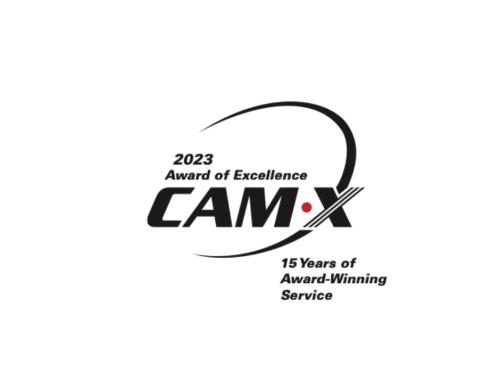A customer service call center serves as the backbone of a company’s customer service operations, providing a centralized hub where all customer inquiries, requests, and concerns are addressed efficiently and effectively. By leveraging the expertise of skilled customer service agents, businesses can elevate their customer service standards to new heights.
When it comes to delivering exceptional customer service, businesses face numerous challenges. And high expectations from their customers.
According to Forbes, 70% of businesses believe that delivering excellent customer service is a top priority for their organization. In fact, 97% of customers report that customer service is a significant factor in their choice of loyalty and brand advocacy. These statistics highlight the undeniable importance of providing outstanding customer service to retain existing customers and attract new ones.
In today’s competitive market, ensuring every customer interaction is handled with care and professionalism is crucial for success. That’s where a customer service call center comes in.
In this blog post, we will explore the many benefits of a customer service call center and how it can help businesses deliver exceptional customer experiences. From improving response times to providing personalized interactions, a call center can be a game-changer for organizations looking to elevate their customer service and thrive in today’s competitive landscape.
Metrics to Track for a Successful Customer Service Call Center
The business landscape today is primarily customer-centric.
That’s why the customer service call center has emerged as a crucial component for enhancing business success. These centralized hubs of customer interactions are vital in delivering exceptional customer experiences, improving operational efficiency, and fostering long-term growth.
Important metrics that you want to make sure you understand include time to answer, abandonment rates, and uptime. At Call Experts, we routinely hit industry standards and have even received Platinum certification from our industry partner ATSI.
In this blog, we will explore how contact centers have transformed the industry and discuss the key metrics that should be tracked to ensure continued customer satisfaction.
How the Customer Service Call Center has Impacted Business.
As SmallBizGenius explains, businesses lose around $75 billion annually as a result of poor customer service.
Businesses can prioritize and streamline customer service with a customer service call center, making each customer feel acknowledged and valued. Below, you’ll discover more of the ways in which the customer service call center has changed business for the better.
- Enhanced Customer Experience
Call centers have played a crucial role in improving the customer experience by providing accessible, efficient channels for support. They’ve ensured timely assistance, fast issue resolution, and personalized interactions through phone, email, chat, and social media.
- Streamlined Operations
Customer service call centers have streamlined business operations by leveraging advanced technologies, automation, and integrated systems. By centralizing customer interactions, contact centers have reduced response times, optimized resource allocation, and minimized customer effort, all while increasing productivity.
- Data-Driven Insights
Call centers generate a wealth of data from customer interactions, providing valuable insights for strategic decision-making. Businesses can analyze metrics such as call volumes, response times, customer feedback, and issue resolution rates through analytics and reporting tools to identify trends and improve processes.
Critical Metrics for Customer Service Call Center Success.
-
Call Center Metrics
- Time to Answer (TTA): This is the total time that it takes for your caller to reach an agent. Typically we strive to answer 80% of our calls in 30 seconds or under.
- Abandonment Rate: This is the total number of calls that are missed or go unanswered. The industry standard is between 5-10% depending on season and time of day.
- Uptime Percentage: Used to measure the percentage of time that a contact center is open and available. We strive for 99% uptime – meaning that regardless of weather, time of day, or season phone/agent services remain up and running.
-
Operational Efficiency Metrics
- Average Handle Time (AHT): Used to measure the average duration of customer interactions.
- First Call Resolution (FCR): Measures the percentage of customer issues resolved in the first contact.
- Service Level Agreement (SLA) Compliance: Measures the percentage of calls answered within a specified timeframe as well as hold time and total calls received.
-
Sales and Revenue Metrics
- Conversion Rate: Measures the percentage of leads or prospects converted into customers.
- Average Revenue per Call: For measuring the average revenue generated from each customer interaction.
- Sales Closing Rate: Measures the percentage of sales opportunities closed successfully.
-
Agent Performance and Engagement Metrics
- Agent Adherence to Schedule: Measures agents’ adherence to their assigned work schedules.
- Quality Assurance Score: Measures agents’ adherence to protocols, scripts, and average call center and operational efficiency metrics.
- Employee Satisfaction Score: Measures agent satisfaction and engagement.
What Industries Benefit Most from Call Centers?
Customer service call centers have proven themselves valuable assets for businesses across various industries, big or small.
While all industries can benefit from efficient and customer-centric call center operations, specific industries particularly stand out due to the nature of their customer interactions and the need for timely support.
Below, you’ll discover some industries that most benefit from customer service call centers, as explained by Forbes.
Retail and E-commerce
In the retail and e-commerce industry, customer service call centers are crucial in addressing customer inquiries, resolving order-related issues, providing product information, and handling returns or exchanges.
With the growing popularity of online shopping, call centers help businesses deliver personalized assistance, enhance the customer experience, and foster customer loyalty, according to HubSpot.
Telecommunications
The telecommunications industry heavily relies on customer service call centers to handle billing inquiries, technical support, service activations, and service disruptions.
Call centers enable prompt resolution of issues, ensure uninterrupted service, and contribute to maintaining strong customer relationships in this highly competitive industry.
Financial Services
The financial services industry benefits significantly from call centers, including banks, credit card companies, and insurance providers.
Call centers can handle account inquiries, transaction disputes, fraud prevention, loan applications, and policy clarifications. In addition, they help build trust and address customer concerns.
Healthcare and Insurance
Call centers play a vital role in patient support, claims processing, appointment scheduling, and insurance inquiries in the healthcare and insurance sectors.
They provide timely assistance, offer guidance on healthcare options, and ensure a smooth customer experience during medical or insurance-related queries.
Travel and Hospitality
The travel and hospitality industry relies on call centers to handle reservations, customer inquiries, flight changes, hotel bookings, and travel assistance.
Call centers ensure seamless customer experiences, assist with itinerary modifications, and address any issues or emergencies during travel. The 24/7 availability of call centers is precious in this industry.
Utilities
Utility companies, such as electricity, gas, heating and cooling, water, and internet service providers, benefit significantly from call centers.
Whether callers need help with billing inquiries, service disruptions, technical support, or account management, call centers answer and dispatch calls.
Call centers enable efficient issue resolution, proactive communication during outages, and personalized assistance, ensuring customer satisfaction and loyalty.
Consumer Electronics and Technology
Call centers help customers set up and configure devices, resolve software or hardware issues, and offer guidance on product usage, contributing to customer satisfaction and reducing product returns.
As you can see, numerous industries benefit from customer service call centers. They serve as critical touchpoints for businesses to deliver personalized support, enhance the customer experience, resolve issues promptly, and form long-term customer loyalty.
Not only that, but they allow businesses to increase the efficiency of their operations, optimize customer interactions, drive satisfaction, and differentiate themselves in competitive markets.
How Can I Find a Reliable Customer Service Call Center?
Finding a reliable customer service call center is crucial for businesses hoping to enhance customer experience and streamline operations.
The right call center can represent your brand, provide exceptional customer service, and contribute to your overall business success.
Below are some critical considerations for business owners when seeking a reliable customer service call center.
Define Your Needs and Goals
Before beginning your search, clearly define your needs, objectives, and expectations from a call center.
Consider factors such as the volume of customer inquiries, the complexity of support required, desired response times, language requirements, and industry expertise needed. This will help you identify call centers that align with your specific requirements.
Assess Experience and Expertise
Look for call centers with experience in your industry or a similar field. A call center that understands your industry and is well-equipped to handle customer inquiries effectively and provide accurate information.
Agent Training and Quality Assurance
Inquire about the call center’s agent training programs and quality assurance processes.
Ask about their hiring criteria, training protocols, ongoing performance monitoring, and coaching practices.
A reliable call center invests in well-trained agents with excellent communication skills, product knowledge, and empathy to deliver exceptional customer experiences.
Scalability and Flexibility
Consider the call center’s ability to scale operations based on your business growth and seasonal fluctuations in customer demand.
Ensure they have the flexibility to adapt to changing requirements, offer flexible contract terms, and provide options to customize service offerings to meet your specific needs.
Data Reporting and Analytics
A reliable customer service call center should provide comprehensive data reporting and analytics capabilities.
Inquire about the type of reports they offer, the frequency of reporting, and their ability to provide insights into customer trends, call volumes, customer satisfaction, and operational metrics.
Access to actionable data will help you make informed business decisions and continuously improve your customer service.
Communication and Collaboration
Effective communication is crucial for a successful partnership. Evaluate a call center’s communication channels, responsiveness, and willingness to understand your unique business requirements before anything else.
By carefully considering these factors, business owners can find a reliable customer service call center that aligns with their specific needs.
A customer service call center enhances the customer experience and contributes to overall business success. In addition, investing time in the selection process will yield a trusted partner who can effectively represent your brand and provide exceptional customer service.
By tracking critical metrics related to customer satisfaction, operational efficiency, sales performance, and agent engagement, businesses can assess the effectiveness of their contact centers and drive continuous improvement. Ultimately, with the power of data and insights, businesses can optimize their contact center operations, deliver exceptional customer service, and achieve long-term success in today’s competitive marketplace.
Top 8 Customer Service Call Center FAQs.
Contact centers have significantly transformed how businesses engage with customers, improving customer experiences, streamlining operations, and increasing revenue.
Here are our top 8 most frequently asked customer service call center questions!
Can call centers provide multichannel support beyond phone calls?
Call centers have evolved to offer multichannel support to meet customers’ changing needs and preferences.
In addition to phone calls, call centers now handle customer inquiries via email, live chat, and even SMS. Multichannel support allows customers to communicate through their preferred channels, enhancing convenience and accessibility.
How can businesses maintain brand consistency when outsourcing customer service to a call center?
Maintaining brand consistency is crucial when outsourcing customer service.
To achieve this, businesses should provide call centers with comprehensive brand guidelines, training materials, and scripts.
In addition, regular communication and collaboration between the business and the call center are essential. This helps to align messaging, address customer concerns, and ensure agents accurately understand and represent the brand.
How can businesses ensure data security when working with a call center?
Data security is a top priority when working with a call center. Businesses should choose a call center with robust data security measures like encryption, firewalls, and access controls.
They should also establish data protection agreements and ensure compliance with relevant data privacy regulations.
What training and qualifications do call center agents have?
Call center agents undergo comprehensive training to equip them with the necessary skills and knowledge to handle customer interactions effectively.
Training programs typically cover communication skills, product or service knowledge, problem-solving techniques, and customer service best practices.
Depending on the business’s needs, agents may receive additional training on specific software systems, industry regulations, or compliance requirements. Ongoing coaching and quality assurance measures help agents refine their skills and improve performance.
Can call centers handle specialized industries or niche markets?
Yes, call centers can handle specialized industries or niche markets.
Many call centers have experience and expertise in specific sectors such as healthcare, financial services, technology, and retail. They invest in training their agents to understand industry-specific terminology, regulations, and customer pain points.
This training enables them to provide tailored support for businesses operating in specialized industries.
How can businesses ensure a seamless transition when outsourcing to a call center?
To ensure a seamless transition when outsourcing to a call center, businesses should establish clear communication channels and timelines with the call center.
Sharing detailed information about products, services, and customer profiles is crucial for agents to provide accurate and consistent support. Regular meetings and reporting allow both parties to address issues, refine processes, and align expectations.
Establishing key performance indicators (KPIs) and service level agreements (SLAs) to measure and monitor the call center’s performance is also essential.
Can call centers provide additional services beyond customer support?
Yes, call centers can provide additional services beyond customer support.
At Call Experts, we offer outbound services such as sales calls, lead generation, customer surveys, and more.
What are the cost considerations when working with a call center?
When working with a call center, cost considerations typically include agent rates, service package options, technology investments, and additional customization or specialized support fees.
While cost is significant, businesses should prioritize the quality of service, agent expertise, and the ability to meet customer needs effectively.
Final Thoughts
A customer service call center enables businesses to provide round-the-clock support, ensuring customers can get assistance anytime. This availability enhances customer satisfaction and helps build trust and loyalty.
Are you ready to work with a call center to better your customer service? Contact us to start the conversation!







